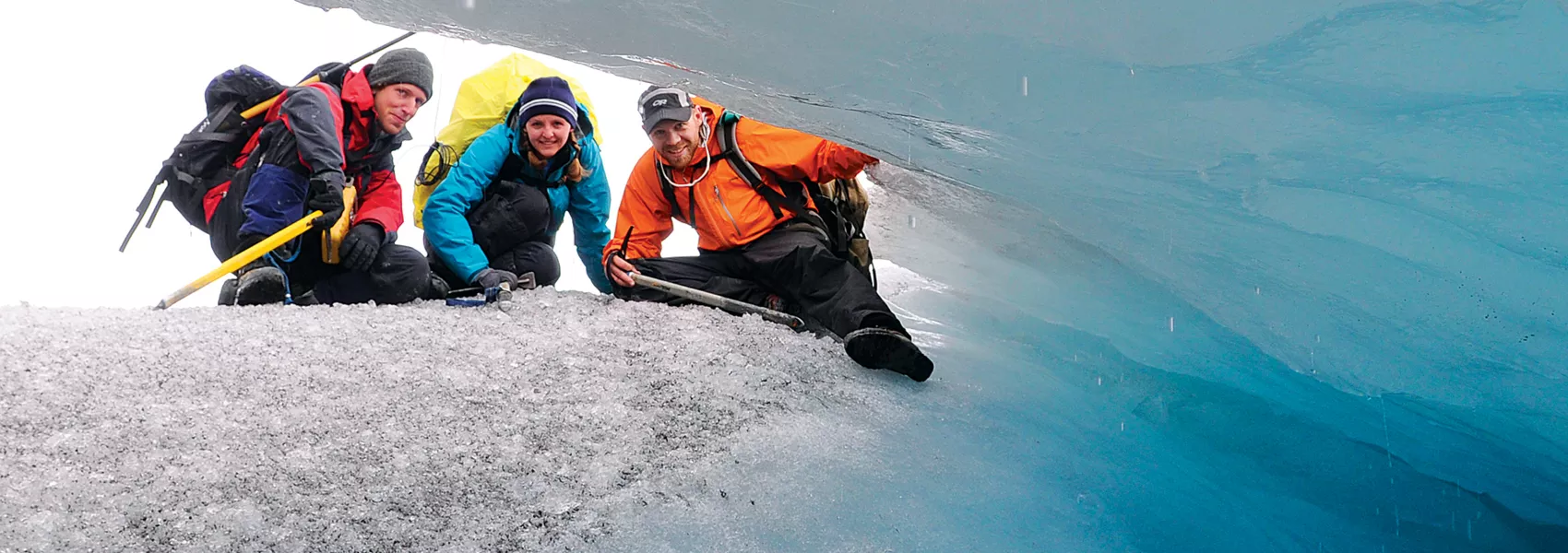
Geography, BA
Geography studies the cultural, social, economic, and political connections between people and their environment.
Examine the factors that shape the complex relationship between human societies and the built and natural landscape. Prepare for career opportunities in community development, land and resource management, or continue your graduate studies.
120 credits, 4 Years,
Part-time available
Program Details
This program emphasizes issues of community development, social justice, environmental equity, and population health in Northern environments.
Examine the dynamics of place-making in a global context using the latest Geographical Information System (GIS) technology, social science methodology and spatial analysis.
Apply sustainable, respectful and culturally aware principles to your work in the lab, classroom and field.
Career Paths
- GIS specialist
- Land and resources manager
- Economic development officer
Why at UNBC
- Curriculum prioritizes best practices in Geographical Information System (GIS), data management, evidence-based decision making, oral and written communication
- Work with expert faculty who integrate their specialized research in areas of health and social development, human-environment interactions and Indigenous land rights in undergraduate courses
- Participate in experiential learning opportunities and exciting field schools
'En Cha Huná
UNBC’s motto, from the Dakelh (Carrier) Elders, reminds us that all people have a voice and a viewpoint. Interpreted as “respecting all forms of life,” 'En Cha Huná encapsulates the spirit of academic freedom, respect for others, and willingness to recognize different perspectives.
Subscribe for updates
Receive personalized emails about your programs of interest, scholarships, application dates and more!
Admission Requirements
High School Requirements (applicable for B.C. and Yukon)
Overall average of 65% minimum in the following:
- English Studies 12 or English First Peoples 12
- Approved Academic Grade 12 Course
- Approved Academic Grade 12 Course
- Approved Academic Grade 12 Course
- Additional Grade 12 Course (Elective or Academic)
Domestic Admission Requirements
View the full list of approved academic grade 12 courses.
More high school admission requirements (including out-of-province, International Baccalaureate and Advanced Placement)
Transfer Requirements
- Have attempted at least 15 credit hours of post-secondary transferable coursework from a recognized institution.
- Be in good academic standing at the transfer institution.
- Have a 2.0 GPA from the most recent 30 credits prior to transfer.
- For the purposes of verifying any outstanding first-year prerequisites, high school transcripts may be requested.
International Admission Requirements
International Student Requirements
- Meet UNBC's English language requirements
- Meet the international admission requirements by country or meet the admission with a General Certificate of Education (or equivalent)
- Complete the required high school course equivalencies outlined in the Domestic tab prior.
Transfer Requirements
- Have attempted at least 15 credit hours of post-secondary transferrable coursework from a recognized institution
- Be in good academic standing at the transfer institution
- Have a 2.0 GPA from the most recent 30 credits prior to transfer
- For the purposes of verifying any outstanding first-year prerequisites, high school transcripts may be requested
Tuition and Fees
Approximate Costs per Academic Year
(30 credit hours, 10 courses)
| Domestic | International | |
|---|---|---|
| Tuition* | $5,985 | $26,750 |
| Student fees* | $1,125 | $1,315 |
| Books* | $1,400 | $1,400 |
* Tuition, fees and books are subject to change and vary among programs.
Scholarships, Bursaries and Awards
View the hundreds of available scholarships, bursaries, and awards.
- 1 in 3 students receive a UNBC financial award.
- $4,000,000 in financial awards given each year.
Important Dates
We Are Here to Help
This is your personal guide through every step of the admissions process. We are here for one reason: to support you. We help every part of the admissions process make sense. Just ask us.
Email: futurestudents@unbc.ca
Phone: 250-960-6306